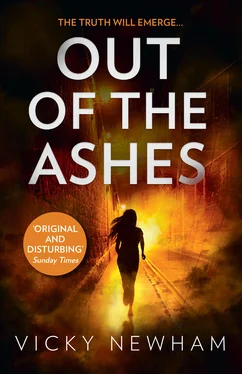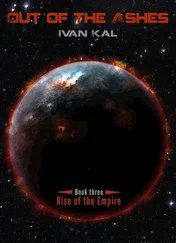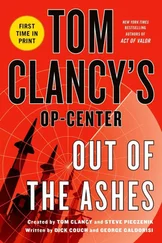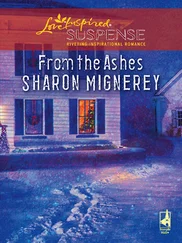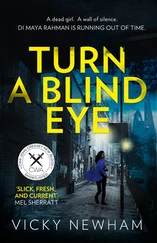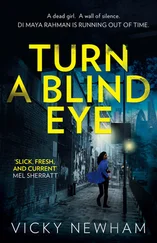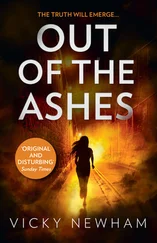As the blaze ripped through the roof, smoke continued to spiral upwards into the sky. Rosa staggered blindly towards the blue door of her shop, to the step and doorway, arms groping ahead for something to grab. The fumes bit at her lungs and she was gasping for air so much she was retching. Finally, her hands grabbed the handle. She used all her weight to heave the door open and stumbled inside, pushing it shut behind her as quickly as she could.
She sucked in some air.
It was like breathing through needles.
She had to get to the phone in the back room. Stands and magazine racks flashed past her as she lurched towards the till, gasping for breath and snatching for a hold. She hauled her way round the counter, head spinning, and grabbed the phone receiver from the wall. Her eyes were streaming.
Keep blinking, she told herself.
Breathe.
She tried to calm herself; to rub away the tears that the fumes had produced; to steady her shaking hands and press the buttons. What should she say? Was it terrorists? Had there been an explosion?
Just say FIRE.
Rosa felt her head starting to spin. Lights flashed, dots appeared and she went floppy. Her mind slipped sideways and everything stopped.
Maya, 2.30 p.m.
I scraped my scruffy hair into a ponytail and took a deep breath. It was the first moment’s peace in the MIT room since seven this morning. I opened the email app on my phone and scrolled down to the one from Forensic Services with ‘Mr K A Rahman’ in the subject line. The message had dropped into my private inbox moments earlier. My finger was poised, ready to click, when Dougie’s advice popped into my mind. ‘If you’re going to do this, you need to be prepared for all possible outcomes,’ he’d said.
Was I?
I wasn’t sure.
I’d given up trying to find out what had happened to Dad. We’d all accepted he was dead, until a year ago when Mum started saying he’d visited her. And now it seemed like he might be alive after all.
‘Emergency services have been on the blower, eh.’ Dan’s Australian accent cut through my thoughts. Never one to enter a room slowly, he lobbed his keys on the desk, curved his athletic frame down on the seat next to me and whacked the space bar on his computer. The impact made my desk shake.
I grunted my disapproval and tucked my phone back in my pocket. ‘What about?’ After eighteen months of working with Dan, I still found some of his behaviour—
‘If you stop texting your boyfriend, I’ll tell you.’ He faced me, his hazel eyes red-rimmed and puffy. ‘Listen to this. First response has flagged up the smell of accelerant.’ He pressed ‘play’ on the recording on his phone.
‘Poleece?’ The woman’s voice was shrill. A heavy accent. ‘My husband is in the fire in Brick Lane. I think someone’s tried to kill him.’ Her words came out in snatches. There was a female voice in the background. It sounded like the person was prompting her. ‘I think someone’s murdered him.’
‘Shit.’ I searched Dan’s face for a reaction, but it was its standard pallid hue. ‘Do we know who made the call?’
‘Can’t trace it. Cell site data places the phone in East Ham but it’s an unregistered mobile. Goes straight to voicemail and there’s no personalised message.’
‘Is there a fire in Brick Lane?’
‘Yeah. Massive one. Uniform are there now with the fire brigade. Here.’ He passed me a transcript of the call. ‘No CID yet though.’
‘“My husband is in the fire” and “I think someone has tried to kill him”? We’d better get over there. I’ll tell Superintendent Campbell we’re going to check it out. What’s the shop?’
‘New place.’ Dan checked the incident log. ‘The Brick Lane Soup Company.’
‘You’re kidding?’ I stared at him. ‘That’s where the Jewish bagel shop used to be. Developers bought it a couple of years ago. There was a real hoo-ha.’ I could vividly picture the freshly cooked salt beef and bagels that had once sat in the window. I grabbed my jacket. ‘Come on. Let’s get over there.’
Minutes later, we were zig-zagging along the A13 from Limehouse, in the clank and clatter of the afternoon traffic. Lorries and red buses belched out choking fumes into the watery April sunlight.
In Brick Lane now, and on foot, the blue lights from the emergency services vehicles barely cut through the black smog which hung over the area. As we approached the street, heading north, discombobulated voices echoed through the haze. Two motorcycle responders tore past us, sirens blaring and blue lights flashing. Dan’s stride quickened, and I broke into a jog to keep up, past the takeaways of my childhood, the barber’s and money shops.
Up ahead, it was a scene of devastation. Smoke caught in my throat and I fished in my pocket for a tissue to cover my mouth and nose. I made out a terrace of three-storey buildings. Here, parts of the roof hung precariously over the shop I’d known since I was a child. Torrents of water were gushing down the street, and spray and fizz had sent puffs of steam into the atmosphere.
A few yards away, the liveried news crew vans were in a cluster, and their staff were frantically assembling satellite dishes, gangly tripods, panels of bright lights, video cameras and sound equipment. The BBC, Sky and ITV reporters were shouting into microphones over the noise of the water pump.
Carly, one of the Sky reporters, had just begun live broadcasting.
‘ . . . here in Brick Lane, it’s a scene of utter carnage. Earlier this afternoon, at around two thirty, emergency services were inundated with calls about a fire in the shop behind me.’ She stopped and pointed. ‘Many callers mentioned music and people dancing in the street before the blaze began. Locals are worried that this might be a tragic case of arson.’ Carly paused. ‘Unusually, it appears that the shop was closed today and . . . ’
We’d arrived at the red and white fire tape now. Outside the cordon, I counted four ambulances. Blue-light staff were escorting people with injuries and burns away from the fumes and into a mobile phone repair shop. Here, paramedics and ambulance staff were triaging care needs, dispensing first aid and carrying out emergency treatments. In the Indian restaurant next-door, uniformed officers were collecting contact details from passers-by and had begun basic interviews.
Dan and I hurried over to the uniformed police officer who was guarding the scene. ‘I’m DI Rahman. This is DS Maguire. Limehouse.’ While he added our names to the log, I told him about the woman’s call to 999. ‘She thinks her husband’s been murdered in the fire. Sounds extremely scared.’
He pointed at a thick-set man with a shaved head, who was standing inside the cordon next to a digger, giving orders to a team of fluorescent-jacketed men with brooms and shovels. ‘Simon Chapel is the fire crew manager. You’ll have to speak to him.’
Dan and I made our way over. An army of personnel had cleared people away and begun conducting operations. Uniformed police, fire-fighters, fire investigation officers and CSIs all weaved around each other. A high-volume pump was in front of the shop, and a water management unit and aerial platform were standing by. Firefighters were a mass of blue uniforms, and their yellow stripes and helmets stood out like beacons. Some were transporting ladders and breathing apparatus. Others were holding jets and unravelling reels. A few charred window frames were still in place. One small pane remained, jagged and angry. Black and white tendrils of smoke were still seeping out of openings, but it was hard to tell whether these were fumes or steam. Water streaked the walls of the building, staining the yellow brickwork.
I introduced Dan and myself to Simon, and told him about the woman’s phone call.
Читать дальше
